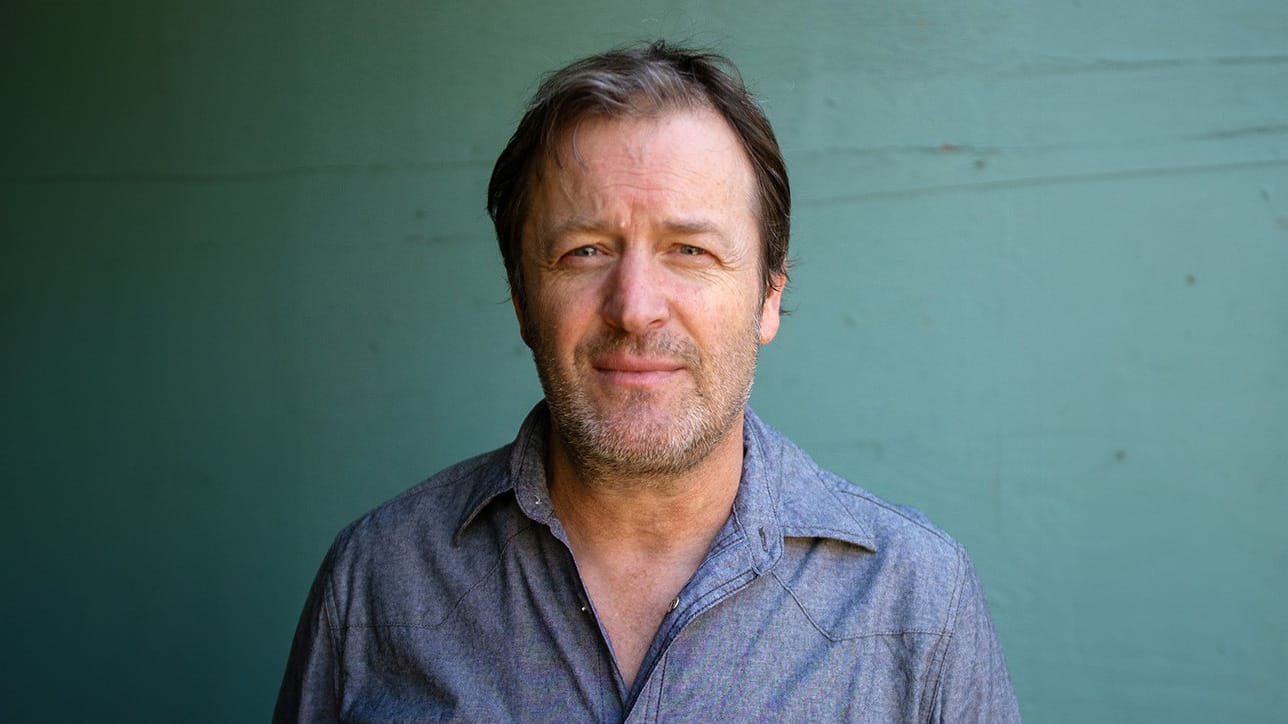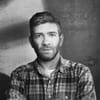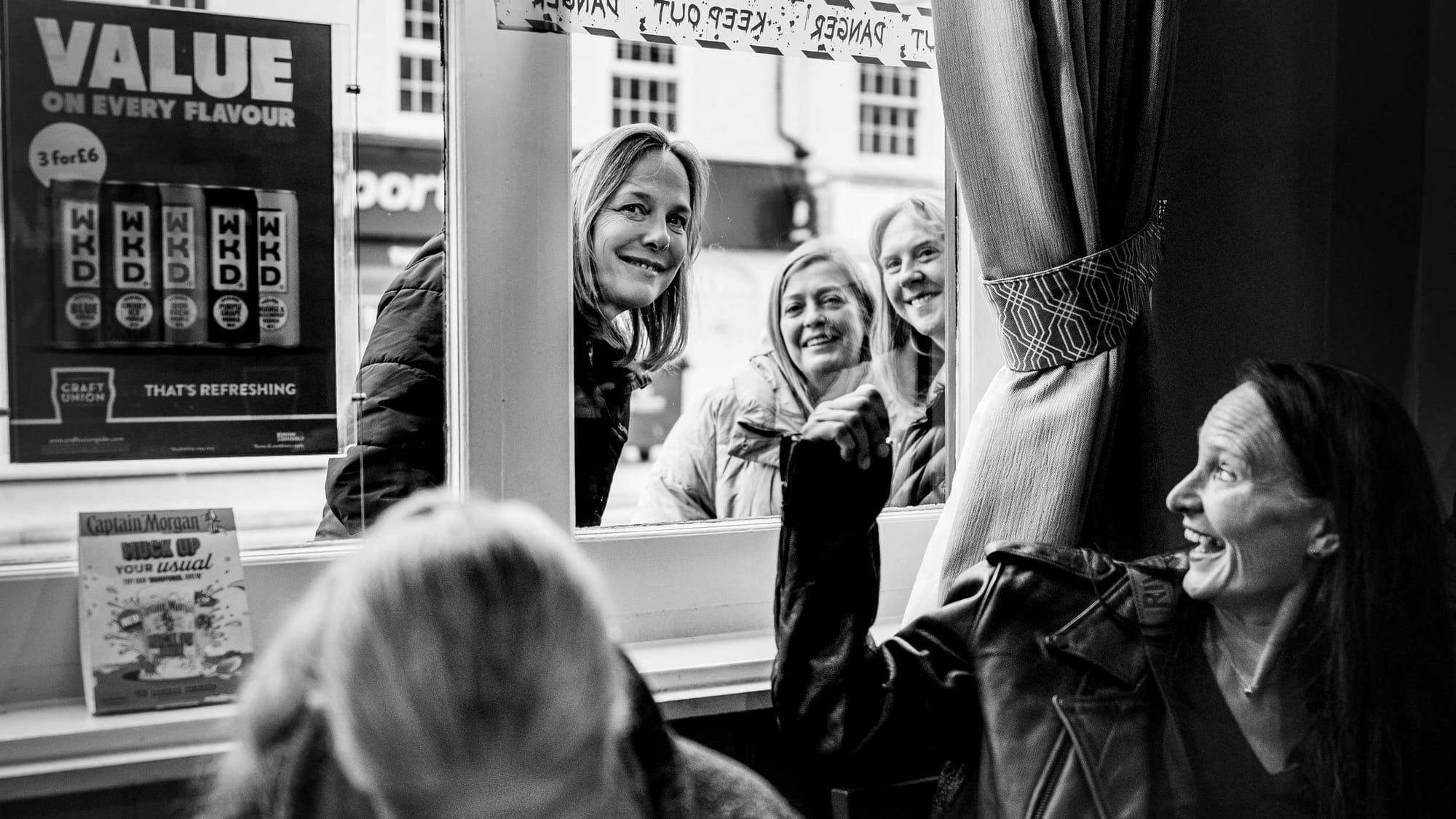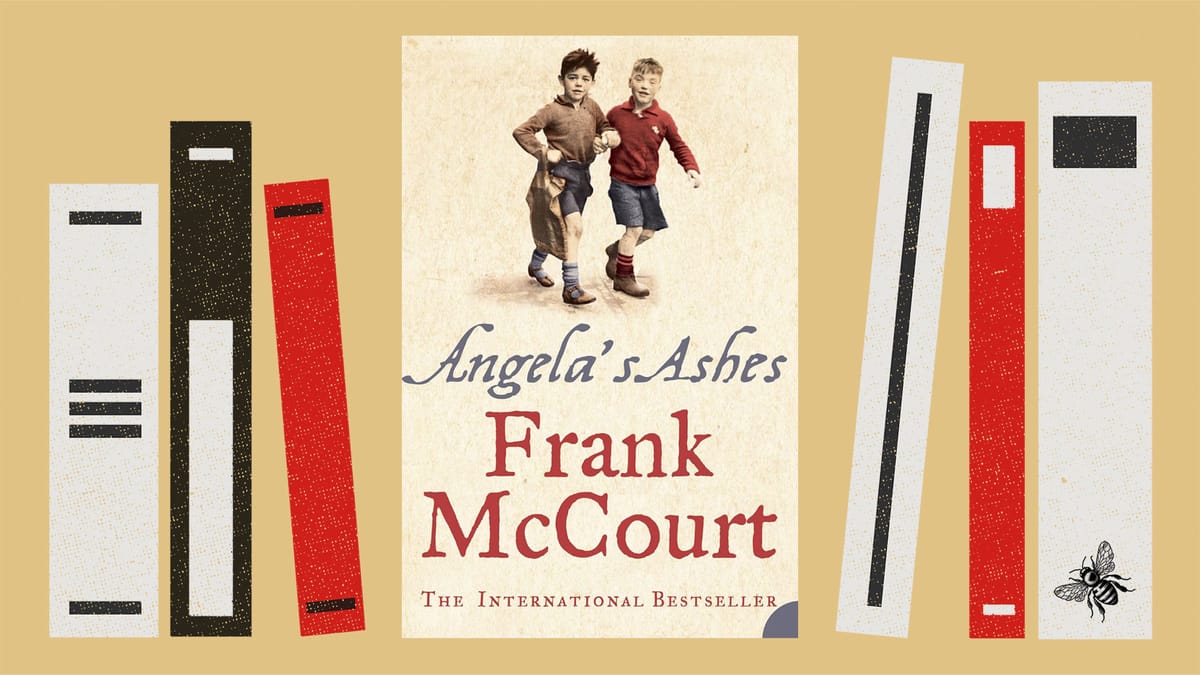Understated, emotionally-rich novels like The Motel Life, Lean on Pete, and Don’t Skip Out on Me have earned Willy Vlautin high praise for their intimate depictions of marginalised lives in the American West. His last, The Horse (2024), tells the story of a young man named Cale, a horse trainer, trying to re-find his footing after a serious injury, has just been awarded this year’s prestigious Joyce Carol Oates. Like most of Vlautin’s work, it documents a dogged individual’s journey through a world of difficult, precarious lives, and the effort involved in dragging yourself clear of destructive forces. The Bee met him to talk about The Horse, and his career as a writer and musician.
Richard Benson: Willy, congratulations on winning the Joyce Carol Oates prize with The Horse. It was a book a lot of people we knew s you know, the Bee is all about writers writing about working-class people, and you’ve attracted a lot of attention and admiration for the way you do that. Did you set out to write about working-class people with a sense of a mission?
Willy Vlautin: Okay. Yeah. I mean, my whole life I’ve wanted to write working-class stories, with hopes that working-class guys would read my novels. You know, it’s really hard to get men to read novels, and particularly working-class men to read novels. And it’s hard for working-class novels to be sold. As you know, in the US the majority of novel readers are women, middle- to upper-middle class women. And so you know that their desire to read about working-class issues is lower… obviously, the great readers go across the board. But it’s still hard.

RB: Do you think that the way the market leans in the US is partly because working-class stories aren’t represented so much, though? I mean, it’s not such a problem with music, which deals much more with working-class lives.
WV: Well yeah, that’s the question, right? It’s a subject I think about a lot. I’ve tried hard to get working-class buddies of mine to read novels, and it’s difficult. I think it's always been a struggle for working-class stories to get out. It’s easier with music, obviously. I don’t know. The reading public is more attuned to what they’re interested in.
RB: It’s interesting in your case, because some of your lyrics are like microcosms of your books, and the themes are certainly similar.
WV: Yeah. You could argue that what appeals to a working-class audience might be horror, or fantasy. Realism and working-class stories I think [are] more difficult to get across to people. I mean, even movies struggle with it. I mean, they do it, but they do struggle with it.
RB: Yes, and often in films with a working-class character, there will be pressure to make them an underdog who overcomes the odds to succeed. That’s different to a lot of your stories, where you’re often writing about people whose lives are chaotic, and who don’t learn from the mistakes.
WV: I mean, I don’t really think about that, to be honest. I just kind of tell the stories. With Don’t Skip Out on Me, my intention was for people to be really mad at the end.
I get so tired of seeing broken kids. I’m like, why did you have these kids if you’re not going to try to take care of them? So I write with ideas like that, more than thinking about endings. My goal was that anyone reading the book, I wanted them to throw it across the room and say, “How, why would he kill this kid?” It’s because this is what happens if you don’t pay attention to your kid, you know.
RB: To shock people out of their comfortable…
WV: It was about me being angry. I’m like, man, you know… so many people have kids, and they don’t take care of them. They abuse them by neglect; they abuse them by not showing up for them, and not caring about their school, not caring. But they still have them. And then those kids go off sideways.
RB: Right now in the US the MAGA movement celebrates traditional family values, but at the same time its led by a president who hardly exemplifies them. Do you see anything in current American culture endorsing or encouraging that selfishness that is damaging kids?
WV: I don’t know. It’d be foolish of me to say I knew. I mean, in general, I think America is a dog-eat-dog society. We do have some really good infrastructure, but all the infrastructure and the social system is always against what runs through the blood of America, which is just straight capitalism. My take is that in America, working-class people think rich people are better. They think that they’re smarter, and that they have the answer, because they’re rich. I think that’s part of the problem with their fascination with Trump. I’ve always battled against that idea.
One of the big wounds [sic] of America is, are we a society that cares about people, or should it be a dog-eat-dog world? We have the opportunity, America gives you the opportunity, but the social safety net, which we have, it’s always on the cutting block, and it’s always getting fought against, too.
RB: When we talk about someone as a working-class writer, there’s a danger that we see the raw materials determining the work more than the artist’s vision and ability. But your work has distinct framings and emphasis and style. How far would you say your take reflects your own personal experience?
WV: You know, the only reason I write about the things I write about is because I don’t know anything else really. I’ve never had, I’ve never – the only glimpses I’ve had of people with money is my dad had money. But I never lived with him. My mom didn’t have money. My mom took two days off: a Friday and a Monday and the weekend, only four days off for 25 years. And she’s worked and worked, drove the same car for 32 years or 33 years. And had nothing. I was a house painter for 12 years, and I painted really rich people’s houses. Like really rich people’s, which is a great gig. So I don’t have a glimpse into writing about anything but what I write about. That being said, I also write about emotion. And I’ve always felt broken, I’ve always felt beat up. And I’ve always been a dark-minded man. So I write about darker subjects with people that are beat up.
That was my anti-war State of the Union of America address (laughs).
RB: Could we talk about how you got started writing?
WV: I was in bands playing music since I was 11. I wasn’t very good at it. My high school bands never did good. One day, I just started writing a story. I hadn’t found a book lately that I really liked, and I hadn’t seen a movie that I really liked, so I wrote one. I love to disappear and stuff… you know, I can see a movie and then think I’m living in the movie for a week. And so I just sat down, right, wrote a story, and I realised that I could do whatever I want, I could live inside it, I could make my own movie in my head. And I wasn’t bothering anybody. Like, no one was yelling at me that I was too loud, or asking why I was playing the same song over and over or blah, blah, blah. I found I could just be in a corner and no one cared.
Career-wise, I didn’t have any kind of gifts, except maybe perseverance. My mom thought the best that would happen to me is if I could get a job at the post office, you know. But I just liked writing and trying to get better at it. I love the power of a good novel; man, there’s nothing as powerful. If you find the right novel for you, you know… it’s such a difficult thing to give the right novel to the right person to get them connected to literature. It’s really tough. I struggle with it. But I always try.
RB: Which writers helped you with your prose style? You’ve talked about Carver and Steinbeck in the past. Are there others?
WV: Carver was important to me early on, he’s so simple. And there’s such beauty in it. Steinbeck is pretty simple. A little more flowery, but, I mean, he has that real stripped-down style. There’s a guy named Larry Brown I really liked, a Southern writer.
But, you know, in my early 20s, I discovered the noir writers like James M Cain, Jim Thompson, Charles Willeford, David Goodis, these maniacs, and they kind of taught me a lot. Barry Gifford. They taught me that side... those writers I mentioned, that kind of noir, is psychologically damaged writers writing about psychologically damaged people. So you have these kind of crazy guys writing about crazy people in a really simple, straightforward, noir story.
RB: Do you have a writing routine?
WV: No, because I like it so much. I just do it until somebody, my wife, will go, “Come on, man, you got to do something. You got to do other stuff.”
RB: When some people start out, they inhibit themselves by feeling like their work’s got to be a certain way. Was that ever how it was for you?
WV: I think you have to make your story yours. You have to fall in love with it, and not worry about publishing or anything. You can’t do anything if you don’t love it in your heart. If you wouldn’t run in front of a truck to save the people in your stories, then probably no one else will.
You know, it’s okay if you’re not very good. It takes a long time and it always will take a long time.
RB: There’s that balance between pushing yourself and pushing so hard you kill it…
WV: A lot of artists don’t think they’re good. Some do think they’re okay. And that’s good. But for the ones that are really hard on themselves, that’s just as detrimental to them as anything.
RB: How did The Horse happen? What was the start of all that, it seems that a lot of life went into it.
WV: It started when I was working on Don’t Skip Out on Me. This old friend of mine and I drive around in the desert, a lot. We’ve done it over the years for 35 years. I asked him to drive around with me while I took pictures and hung out where that novel took place – I grew up camping in that area.
One day we were driving maybe 30 miles from the nearest road, and we came across a wild horse that was blind, in the middle of a big salt flat. So literally, man, literally 20 miles from a tree;10 miles from a tree, maybe. No water on the soil, on its own. And it just stopped me in my tracks. I’ve never seen anything sadder for me, because horses aren’t meant to be alone. They hate being alone. And they’re flight animals. So he’s scared and he can't see and he’s got no friends. And, and we just stopped, and you can see he was blind because both his eyes, [the] sockets were small, and there was stuff hanging out in one, like in the book.
We camped near the horse, and then the next day, we went back into town. They have a Bureau of Land Management that looks after wild horses in that area. And so the guy goes, “Oh, man, I’ll come out for it.” And then after that, we were driving, we kept driving farther into the desert; it’s really beautiful out there. And we couldn’t stop talking about it. And I mean, I know what man does to each other is horrific. I mean, you just open the newspaper every day, you can see it. But there was something so sad about seeing the end of a guy’s life, a horse’s life, the saddest ending imaginable to that poor horse, which would be, “I’m alone, I can’t see and I can’t even…”
At this time I’d been touring too much, and my life wasn’t going out good. I was boozing too much, so… The romantic in me wanted to write about, you know, the life of a journeyman working-class musician. So that’s how it all kind of began. And then I spent years tinkering on it. Years rebuilding that story and telling it in a few different ways. Oh, yeah, it takes me a long time. I have to edit a lot and rework the books a lot.
RB: Some of your darker, more callous characters – the villains if you like – are struggling with demons, aren’t they? I’m thinking about some of the people in The Night Always Comes. Or the boss in Lean on Pete. Do you ever feel any tension between representing a community and writing about the individuals in that community? You write about working-class communities and you stick up for working-class people, but then some of your bad guys are working class too. Is that something you ever think about?
WV: Well… The Night Always Comes is a pretty political novel in a way, you know. With that I was really interested in the idea of it all kind of starting with the housing and homelessness explosions. Where I live in Portland, Oregon, housing prices went up like, you know, something like 200% in less than ten, In 15 years, but in wages only doubled. You know, and so you’re like, holy shit, how is a working-class person ever gonna buy a house that was built for working-class people? All these little houses were built for the workers, but now workers can’t afford them. And that would drive me crazy. And then you have quotes by, you know, like President Trump, when he was talking about a business deal but he says in business, it’s – the point is don’t, you can’t be too greedy. Greed is good. It’s good to have more, it's good to have four houses, even though you only live in one. And it really made me mad.
RB: What is the worst job you’ve ever had?
WV: I mean… like funny worst jobs?… I guess the worst job I had – and for me it was good job, really – was when I worked at a union trucking company for a while. You just unloaded trucks. No one talked to you. I’d worked in Reno at the same trucking company, and the depot was small, and that was really fun, with cool guys. But [at the other depot] I was just a number, and that was rough. I worked in a warehouse for a while where I didn’t talk to anybody all day. And I just labelled boxes, because they had a different barcode system. And I just would do that all day, day after day and no one talked to you and you know, my girlfriend and I weren’t getting along, I had no money. I was trying to be in a band. I was hungover every day. And then you’re by yourself under fluorescent lights, you know, in a warehouse the size of a football field. Yeah, that’s probably the worst before. Yeah, I’ve had a lot of those kinds of bad jobs. I’ve quit a few of them. That’s the bleakest though.
I’ve done different jobs. I’ve been a janitor. I worked in trucking companies for years. I was a shipping receiving clerk for a couple years. And a house painter. I was always too shy to work in bars. But then my being in a band cured me of being so shy.
RB: When you were in the warehouse, what job did you dream of?
WV: Electrician. I had an opportunity once to be an electrician. And that’s where I wanted to go, man. Because that, in the US that’s the king of the trades. Like you have a really good union, good pension. It’s hard work, but it’s more thinking work. That was always the dream.
But yeah, I did always want to be in a band. But I was never that good.
All donations go towards supporting the Bee’s mission to nurture, publish promote and pay for the best new working-class writing.









Comments